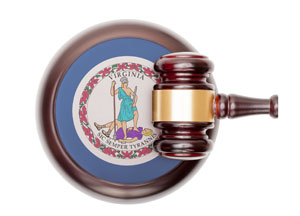A federal appeals court has overturned the death sentence of a man who was convicted of raping and beating a woman to death because the testimony of an expert witness had been wrongly excluded.
The Crime
In September 2008, 29-year-old Genevieve Orange returned home from her job at the Futures Industry Association in Washington, D.C. and lay down on her couch to watch a DVD. Mark Lawlor, a leasing agent for Orange’s building, broke in with a key and began beating her.
Lawlor used a frying pan and and hammer to beat Orange. Evidence showed that Orange incurred 30 blows to her skull and 17 more wounds on her arms. Lawlor then raped Orange as she lay dead or dying on the floor.
When Orange failed to show up for work, a police officer found the door to her apartment unlocked. Orange’s body way on the floor with her head covered in blood, naked from the waist down, and with her shirt pulled up to her neck.
The Trial
At Lawlor’s capital murder trial, his attorneys admitted that he killed Orange, but they asked the jury to convict him on the lesser charge of first-degree murder. Lawlor’s attorneys argued that his mind was so muddled by beer and crack cocaine that his actions could not meet the legal standard of capital murder.
At the sentencing phase of his trial, capital public defender Ed Ungvarsky said, “I ask you, I implore you, I beg of you, chose life.”
Genevieve Orange’s mother, Marilyn Orange, did not buy the argument that Lawlor was too drunk or high to appreciate his actions. She said, “He had drugs in him, he had alcohol in him… But a lot of people have drugs and alcohol in them, and they don’t kill anybody.”
Orange also noted that Lawlor never apologized for his actions. “He’s not remorseful,” she said. “It was always: ‘Poor me. I didn’t have a chance at this or that, and poor, poor me.’ ”
During the sentencing hearing, the Fairfax judge who presided over the trial limited the testimony of a defense witness from testifying about the future danger Lawlor posed in prison. Fairfax Circuit Court Judge Jonathan C. Thacher ruled that the expert must testify about Lawlor’s potential threat in all of society, not just in prison
The Appeal
On appeal, the Virginia Supreme Court and a federal district court ruled that Thacher’s ruling were correct. However, the Fourth Circuit Court of Appeals disagreed with the ruling.
The court reversed the ruling, citing a U.S. Supreme Court ruling from 1981 that said the “Eighth and Fourteenth Amendments require that the sentencer not be precluded from considering, as a mitigating factor, any aspect of a defendant’s character or record … that the defendant proffers as a basis for a sentence less than death.”
The court noted that there was “grave doubt” that the limitation of the testimony was harmless and remanded the case to U.S. District Court in Alexandria for proceedings consistent with its opinion.
A spokesperson for the state Attorney General Mark Herring said that Herring will review the Fourth Circuit’s ruling and decide how to proceed.




